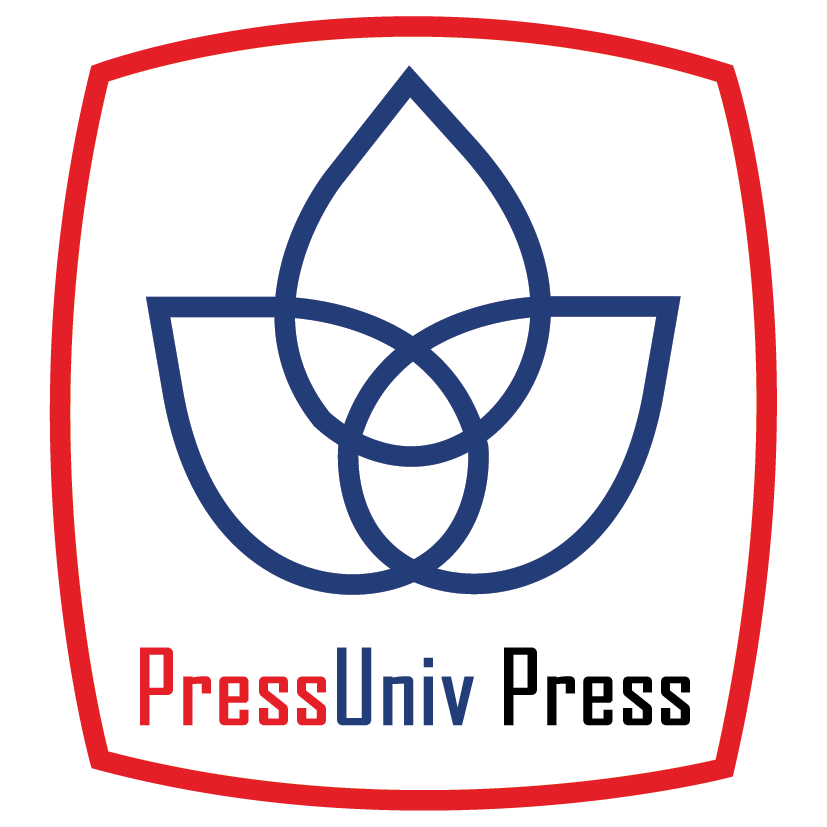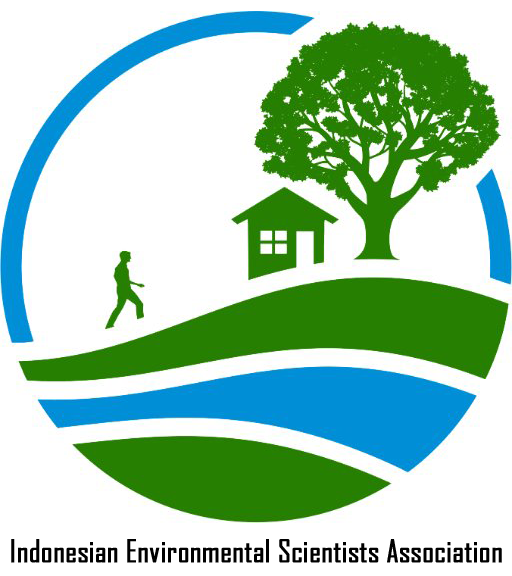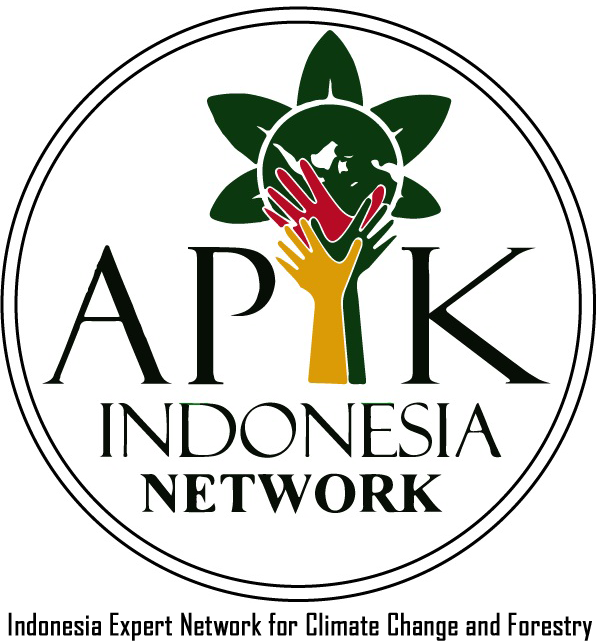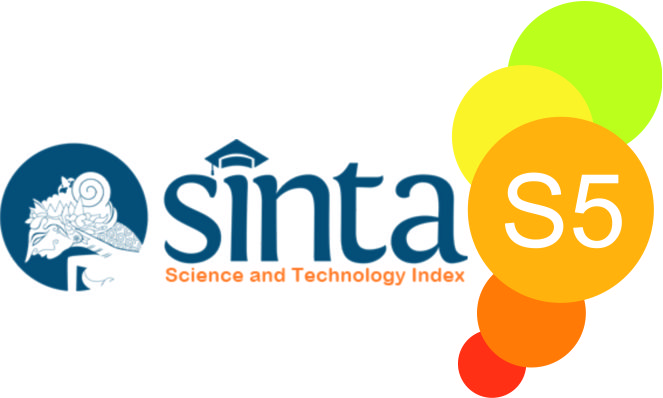Analisis Status Keberlanjutan Ekowisata Boonpring di Kabupaten Malang Provinsi Jawa Timur
Abstract
Keywords
Full Text:
PDF (Bahasa Indonesia)References
S. Astana, “Kebijakan pengembangan agribisnis bambu.” Info Sosial ekonomi Vol. 2 No. 1, hlm. 11-28, 2001.
Balai Taman Nasional Bogani Nani Wartabone. “Pendidikan Konservasi merupakan Program Unggulan Mengajar Resort Pinogaluman. Tersedia: http://ksdae.menlhk.go.id/berita/7088/ pendidikan-konservasi-merupakan-program-unggulan-mengajar-resort-pinogaluman.html, 07 November 2019 [Jan. 20, 2022].
Departemen Kebudayaan dan Pariwisata, WWF-Indonesia. 2009. Prinsip Dan Kriteria Ekowisata Berbasis Masyarakat. Jakarta (ID): Departemen Kebudayaan dan Pariwisata.
Fauzi A.. Analisis Keberlanjutan melalui Rapid Appraisal dan Multi Dimensional Scalling (RAP+/MDS). Bahan Pelatihan Multi Criteria dengan Multi Dimensional Scalling Program Studi PSL IPB. 17 Maret 2013. Bogor. 2013
Fauzi A. Anna S. Pemodelan Sumberdaya Perikanan dan Kelautan. Jakarta: Gramedia Pustaka Utama. 2005
J. Wijayanto, LOH Dotulong,”Pengaruh pelatihan kompetensi dan motivasi terhadap kinerja karyawan pada PT. Plasa Multi Krindo Manado” Jurnal EMBA, Vol. 5, No. 2, hlm. 3048-3057, 2017.
Kementrian Desa, Pembangunan Daerah Tertinggal dan Transmigrasi Republik Indonesia. https://kemendesa.go.id/berita/view/detil/2045/memanfaatkan-embung-boon-pring-untuk-ekowisata, 28 Maret 2017 [Des. 21, 2021].
Kavanagh P. Rapid Appraisal of Fisheries (Rapfish) Project, Rapfish Software Description (for Microsoft Excel). Vancouver (CA): Fisheries Centre. University of British Columbia. 2001
M. Maharani, Model pengelolaan usaha jasa rumah potong hewan rumminansia (RPH-R) secara berkelanjutan. Bogor: Institut Pertanian Bogor. 2015
Nursalam. Konsep & Penerapan Metodologi Penelitian Ilmu Keperawatan: Pedoman Skripsi, Tesis, dan Instrumen Penelitian Keperawatan. Jakarta (ID): Salemba Medika. 2003
Pusat Pengendalian Pembangunan Ekoregion Sulawesi dan Maluku Kementrian Lingkungan Hidup dan Kehutanan. “Pemanfaatan Bambu Bisa Jadi Solusi Perubahan Iklim”. http://p3esuma.menlhk.go.id/versi3/index.php/news/87-berita/373-pemanfaatan-bambu-bisa-jadi-solusi-perubahan-iklim. 7 November 2017 [Des. 21, 2021].
[Permen] Peraturan Menteri Dalam Negeri Nomor 33 Tahun 2009 Tentang Pedoman Pengembangan Ekowisata di Daerah. 2009.
[Permen] Peraturan Menteri Tenaga Kerja dan Transmigrasi Nomor 7 Tahun 2013 Tentang Upah Minimum. 2013.
TJ. Pitcher, D. Preikshot, “RAPFISH: a rapid appraisal technique to evaluate the sustainability status of fisheries Fish Res” . 49:255-270, 2001.
TJ. Pitcher, ME. Lam, C. Ainsworth, A. Martindale, K. Nakamura, RI. Perry, T. Ward, “Improvements to Rapfish: a rapid evaluation technique for fisheries integrating ecological and human dimensions.” Journal of Fish Biology. , Vol. 83, No. 4, hlm. 865-889, 2013.
TS. Salahudin,“Hak Masyarakat Dalam Pembentukan Peraturan Perundang-Undangan.” Jurnal Legislasi Indonesia. , Vol. 17, No. 2, hlm. 159, 2020
Soemarwoto, O. Indonesia dalam Kancah Lingkungan Global. Gramedia Pustaka Utama, Jakarta. 1992
Sugiyono. Metode Penelitian Kuantitatif Kualitatif dan R & D. Bandung (ID): Alfabeta. 2013
TIES. TIES announces ecotourism principles revision” https://www.ecotourism.org/ news/ties-announces-ecotourism-principles-revision. 7 Januari 2015 [Des. 8, 2021].
M. Yusuf, A. Fachrudin, C. Kusmana, MM. Kamal, “Analisis Faktor Penentu Dalam Pengelolaan Berkelanjutan Esturia DAS Tallo,” Jurnal Analisis Kebijakan. , Vol. 13, No. 1, hlm. 41-51, 2016.
M. S. Habibullah, B. H. Din, C. W. Chong, and A. Radam, “A Cross-Country Analysis on the Impact of Tourism on Threatened Plant Species,” Procedia - Soc. Behav. Sci., vol. 224, no. August 2015, hlm. 14–19, 2016.
J. O. Jalani, “Local People’s Perception on the Impacts and Importance of Ecotourism in Sabang, Palawan, Philippines,” Procedia - Soc. Behav. Sci., vol. 57, hlm. 247–254, 2012.
H. Idajati, A. Pamungkas, and S. Vely Kukinul, “The Level of Participation in Mangrove Ecotourism Development, Wonorejo Surabaya,” Procedia - Soc. Behav. Sci., vol. 227, no. November 2015, hlm. 515–520, 2016.
DOI: http://dx.doi.org/10.33021/jenv.v7i1.3603
Copyright (c) 2022 Muhammad Al Furqan Hakim

This work is licensed under a Creative Commons Attribution-ShareAlike 4.0 International License.
Journal of Environmental Engineering and Waste Management Published by PresUniv Press, in collaboration with IESA and APIK Indonesia Network




